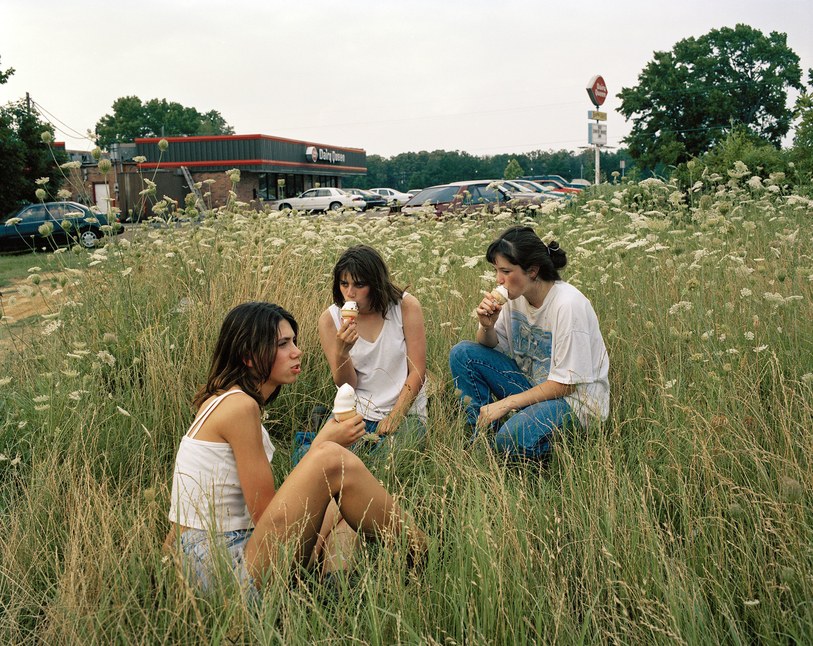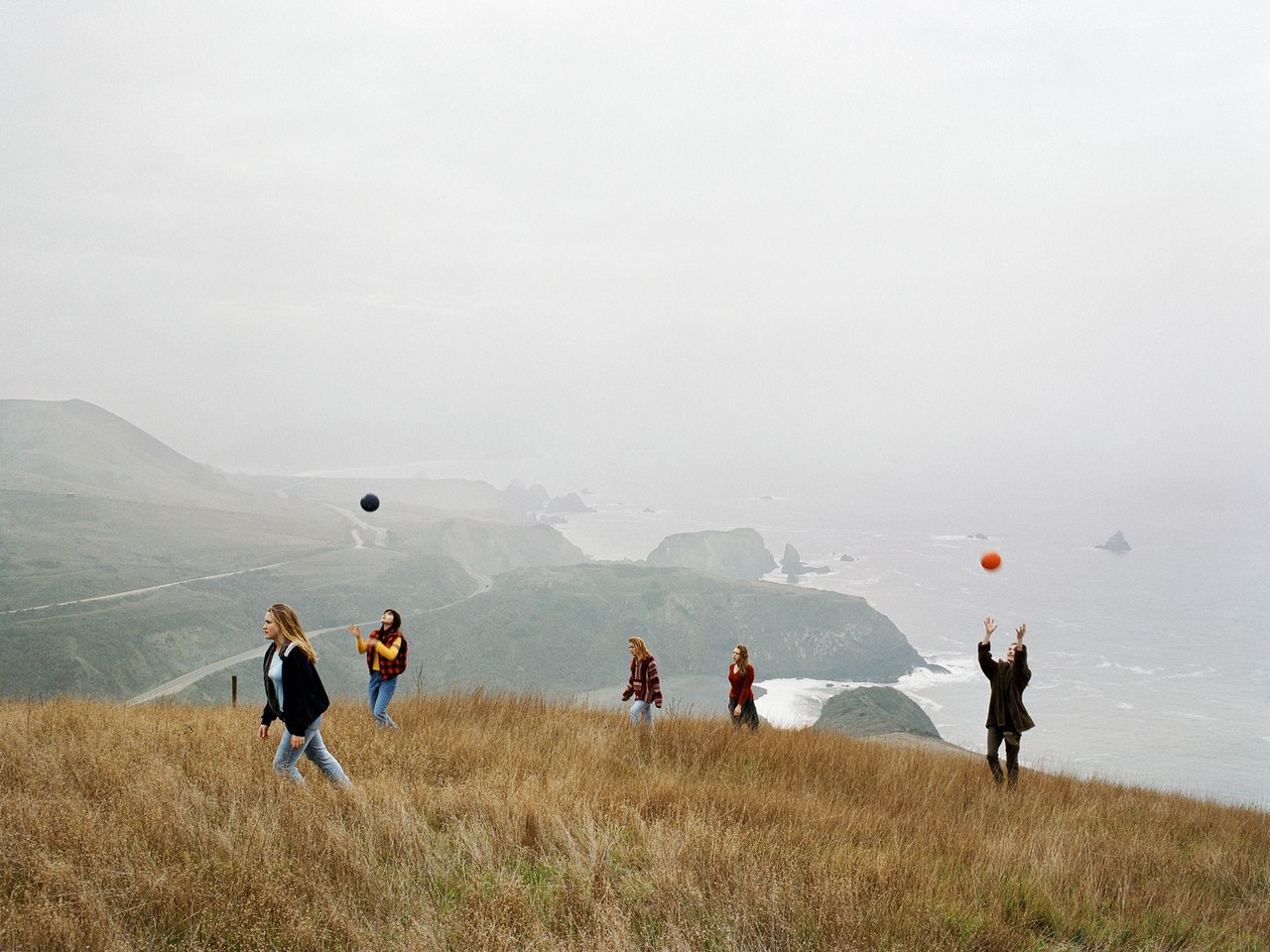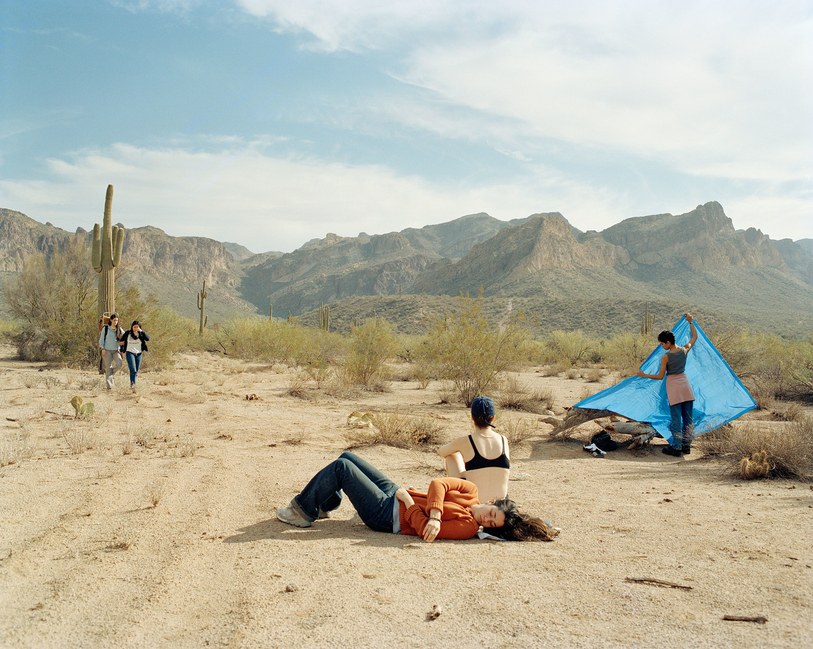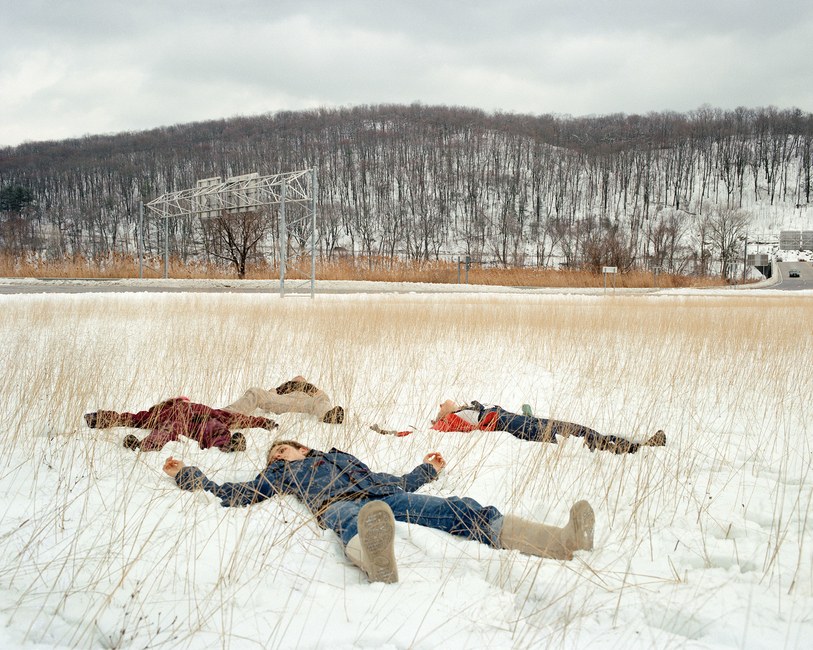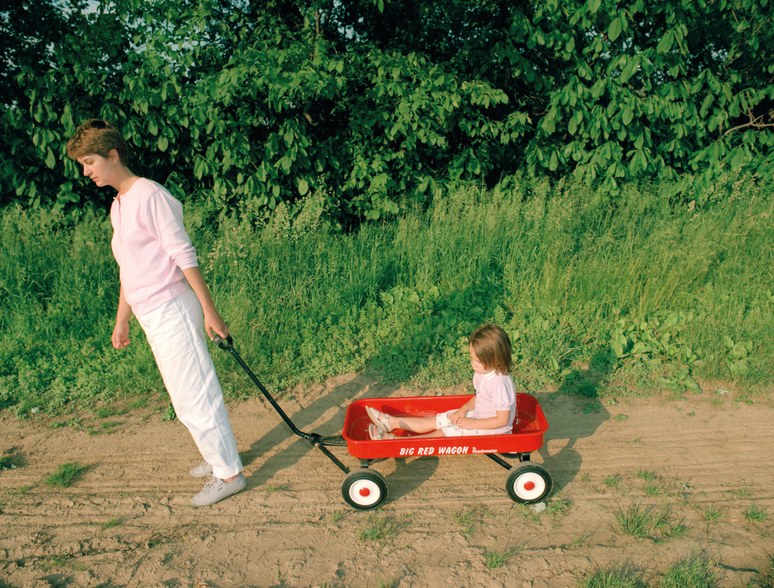A sudden blow: the great wings beating still
Above the staggering girl, her thighs caressed
By the dark webs, her nape caught in his bill,
He holds her helpless breast upon his breast.
How can those terrified vague fingers push
The feathered glory from her loosening thighs?
And how can body, laid in that white rush,
But feel the strange heart beating where it lies?
A shudder in the loins engenders there
The broken wall, the burning roof and tower
And Agamemnon dead.
Being so caught up,
So mastered by the brute blood of the air,
Did she put on his knowledge with his power
Before the indifferent beak could let her drop?
- William Butler Yeats
Cancer
Mine, I know, started at a distance
five hundred and twenty light-years away
and fell as stardust into my sleeping mouth,
yesterday, at birth, or that time when I was ten
lying on my back looking up at the cluster
called the Beehive or by its other name
in the constellation Cancer,
the Crab, able to move its nebulae projections
backward and forward, side to side,
in the tumor Hippocrates describes as carcinoma,
from karkinos, the analogue, in order to show
what being cancer looks like.
Star, therefore, to start,
like waking on the best day of your life
to feel this living and immortal thing inside you.
You were in love, you were a saint,
you were going to walk the sunlight blessing water,
you were almost word for word forever.
The crown, the throne, the thorn—
now to see the smoke shining in the mirror,
the long half-dark of dark down the hallway inside it.
Now to see what wasn’t seen before:
the old loved landscape fading from the window,
the druid soul within the dying tree,
the depth of blue coloring the cornflower,
the birthday-ribbon river of a road,
and the young man who resembles you
opening a door in the half-built house
you helped your father build,
saying, in your voice, come forth.
- Stanley Plumly
Postscript
And some time make the time to drive out west
Into County Clare, along the Flaggy Shore,
In September or October, when the wind
And the light are working off each other
So that the ocean on one side is wild
With foam and glitter, and inland among stones
The surface of a slate-grey lake is lit
By the earthed lightning of a flock of swans,
Their feathers roughed and ruffling, white on white,
Their fully grown headstrong-looking heads
Tucked or cresting or busy underwater.
Useless to think you'll park and capture it
More thoroughly. You are neither here nor there,
A hurry through which known and strange things pass
As big soft buffetings come at the car sideways
And catch the heart off guard and blow it open.
- Seamus Heaney
Chicago at Night, 1989
The Empty Glass
I asked for much; I received much.
I asked for much; I received little, I received
next to nothing.
And between? A few umbrellas opened indoors.
A pair of shoes by mistake on the kitchen table.
O wrong, wrong—it was my nature. I was
hard-hearted, remote. I was
selfish, rigid to the point of tyranny.
But I was always that person, even in early childhood.
Small, dark-haired, dreaded by the other children.
I never changed. Inside the glass, the abstract
tide of fortune turned
from high to low overnight.
Was it the sea? Responding, maybe,
to celestial force? To be safe,
I prayed. I tried to be a better person.
Soon it seemed to me that what began as terror
and matured into moral narcissism
might have become in fact
actual human growth. Maybe
this is what my friends meant, taking my hand,
telling me they understood
the abuse, the incredible shit I accepted,
implying (so I once thought) I was a little sick
to give so much for so little.
Whereas they meant I was good (clasping my hand intensely)—
a good friend and person, not a creature of pathos.
I was not pathetic! I was writ large,
like a queen or a saint.
Well, it all makes for interesting conjecture.
And it occurs to me that what is crucial is to believe
in effort, to believe some good will come of simply trying,
a good completely untainted by the corrupt initiating impulse
to persuade or seduce—
What are we without this?
Whirling in the dark universe,
alone, afraid, unable to influence fate—
What do we have really?
Sad tricks with ladders and shoes,
tricks with salt, impurely motivated recurring
attempts to build character.
What do we have to appease the great forces?
And I think in the end this was the question
that destroyed Agamemnon, there on the beach,
the Greek ships at the ready, the sea
invisible beyond the serene harbor, the future
lethal, unstable: he was a fool, thinking
it could be controlled. He should have said
I have nothing, I am at your mercy.
- Louise Gluck
Low Tide, Late August
That last summer when everything was almost always terrible
we waded into the bay one late afternoon as the tide had almost finished
pulling all the way out
and sat down in the waist-deep water,
I floating on his lap facing him, my legs floating around him,
and we quietly coupled,
and stayed, loosely joined like that, not moving,
but being moved by the softly sucking and lapping water,
as the pulling out reached its limit and the tide began to flow slowly back again.
Some children ran after each other, squealing in the shallows, near but not too near.
I rested my chin on his shoulder looking toward the shore.
As he must have been looking over my shoulder, to where the water deepened
and the small boats tugged on their anchors.
Fiat Lux
Static from the radio stippled grey as anesthesia dream,
band after band of voices,
the luminous bar of speedometer, column shift. Cruising,
the long battered car fogged in whiskey
breath, the sumptuous trash, canvas scraps, pasteled
bills of lading. Father and daughter—
and over them blue spruce laden with snow arcing the white
mentioned avenue of robber barons’
palaces, the steamship magnates and celebrities, the city’s
skyline gothamed electric
across the horizon. Small hands on the pane wick the chill
until I’m icy pure flame,
outside the big houses, streets unwinding below like a tulle scarf
from a woman’s shoulders
to the damp wooden houses huddled in their steam,
the marshes’
smoking blackness beyond. Swallow the moon like a coin,
an ivory poker chip polished
for luck, driving fast past the opera singer’s house, his name
like nervous laughter, that
music blown to shards, arias of ice, and always the city’s
dragon-back silhouette, someplace
a child might never get to. Fiat lux, the windows’
glow, buttery and old.
The city’s become a figure for the way you’ve learned to love
what’s distant, fantastic,
an abyss of space between. One of those returning things, skeins
of planetary days, lunar phases,
solar years turning harmonies celestial in the blood. One’s
never done with the past.
Close your eyes. The laden winter night, hill tumbling downs
and beneath the burning meadows’
spreading stain, the runaway’s smoking train through roots, the blind
white worms and rat swarms
underneath the mercury-colored river. I always loved stories
that began that way: the elaborate entry
to the city of cast-iron garlands and window displays intricate
as a universe with shining cogs
and wheels, a world where night reversed to day, and towering Women
waterfalled their Dynel tresses
in the shelter of marquees, boas spitting plumage in the faces
of nightwaiters.
Yes, the gilded birds, plunder in the turrets. And the pulse,
the mission, secret formulas
discovered all around me, the daughter swept in her black serge
dust-bin coat, tangled in foxtails,
glass eyes, shoplifter’s pockets sewn inside stuffed with broken trinkets,
cancelled stamps from Peru and Mozambique.
Fingers tracing the skyline through the windshield of that battered car:
mere fiat lux, tricks,
delusions of sleek verb, the lustrous nouns. How to imagine
those places where chaos
holds sway, the old night where you hear scared laughter pierce
the anesthesia dream, song
of shoulders pushed rough to alley walls, torn caress, dark dress,
song that goes
I’ll do it for 10, for 5, I’ll do it, burnt spoon twisted in the pocket.
Don’t tell her. Child stroking
the frosted pane, galactic, impervious and caught in this endless
coming to be that’s endlessly undone
the long car’s weaving tracks blurred quickly in the snow beneath
the laden shelter of trees,
my father’s whiskied breath as we drove like thieves through skeins
of planetary nights, air rich
with signals, the arias and perfect boundless schemes where
the city floated
distant and celestial, brutal in its own rung music.
- Lynda Hull
Sphere
For Harold Bloom
"Sir, I don't have no black tea," the waitress replied,
so I ordered Black Label instead. It was summer and the fragrant
white flowers of the black locusts had awakened, like faeries or obscure matter.
A black bear clothed in thorns made a mess of the bird feeder where hungry
blackcaps were a vision. And the black flies were biting energetically.
Billy died of the Black Death (I shouldn't call it that) and hovered like a
winged horseman.
There's nothing so wrong as when young folks die. I smashed my bike,
blacked out, and got two black eyes. At the Mayo Clinic,
Daddy had his arteries cleared, praising the surgeon's fine black hands.
After he died, we called everyone in his black book and found
a black space that couldn't be lifted by impotent wings. Like me,
he was the black sheep. There were struggles. Once, driving near Black Mountain,
he blurted, "There ain't nothing so good as stolen corn or watermelon."
His face was like a smiling black spider's. Questioning the earth
from which he came ("Son, you got mixed blood")—and that drew him back—
he cleared a way forward into the murky light. Beside the roadside blacktop,
a deer, with black diamonds in its eyes, lay in a bed of black pansies.
Around us, black ash and black walnuts made a velvety curtain.
Dead ten years, he visits me often, like a head behind bars, with that black temper
and black bile still coming out of his mouth, but tenderness, too, like black gold.
Did I love him back, I wonder? If I loved him with all my heart
and all my liver, why did I spit him into the river?
- Henri Cole
Mozart, Beethoven, Schubert, Liszt, Berlioz, Bizet, Rimsky-
Korsakov, Debussy, Bartok, Hindemith, Schonberg, Szymanowski, hundreds of composers throughout all of Europe. Over all of Europe the wind of alterity blows, all these great men use what comes to them from the Other to modify the Self, to bastardize it, for genius wants bastardy, the use of external procedures to undermine the dictatorship of the church chant and harmony, why am I getting worked up all alone on my pillow now, probably because I'm a poor unsuccessful academic with a revolutionary thesis no one cares about. Today no one is interested anymore in Felicien David who became extraordinarily famous on December 8, 1844 after the premiere of Le Desert at the Paris Conservatoire, an ode-symphony in three parts for narrator, solo tenor, male chorus, and orchestra, based on the composer's memories of his journey to the Orient, between Cairo and Beirut...The Desert invades Paris--"by unanimous opinion, it was the most beautiful storm music had every produced, no maestro had ever gone so far," Theophile Gautier writes in La Presse, describing the storm assailing the caravan in the desert; it's also the premier of the "Danse des almees," the Dance of the Almahs, an erotic motif whose subsequent fortune we know, and surprise of surprises, the first "Chant du muezzin," the first Muslim call to prayer that ever sounded in Paris."
- Mathias Enard, from Compass
Yellowjackets
When the plowblade struck
An old stump hiding under
The soil like a beggar’s
Rotten tooth, they swarmed up
& Mister Jackson left the plow
Wedged like a whaler’s harpoon.
The horse was midnight
Against dusk, tethered to somebody’s
Pocketwatch. He shivered, but not
The way women shook their heads
Before mirrors at the five
& dime—a deeper connection
To the low field’s evening star.
He stood there, in tracechains,
Lathered in froth, just
Stopped by a great, goofy
Calmness. He whinnied
Once, & then the whole
Beautiful, blue-black sky
Fell on his back.
- by Yusef Komunyakaa
Monster
The train, which I took back
across the great plain,
I tell you, it was a monster
with a swollen belly.
It had a lair in Pulawy,
ravened in Warsaw;
children greeted it
and it swallowed them.
Now they’re playing together—
the boys from the blocks,
the girls with the matches,
Aesculapius in palaestra.
Their parents have managed
to toss each one a toy:
hamsters in an aquarium,
A PlayStation, and a stamp album.
The parents are getting older,
longing consumes them,
now it’s they who come
to greet the travelers.
They look at their watches
through dark glasses,
and would like to light up,
but where’s the fire?
Until the icebreaker Sadness
weighs anchor.
Until the Summer School
of Common Language begins.
I was there, I know what I’m saying,
it was a thick monster—
the train, which I took back
across the great plain.
- by Dariusz Sosnicki
(Translated from the Polish, by Piotr Florczyk and Boris Dralyuk)
The Road
Better a monosyllabic life than a ragged
and muttered one; let its report be short
and round like a rifle, so that it may hear
its own echo in the surrounding silence.
THOREAU
A life: pared to the bone.
Think of a room with no
chair, no bed. Like a monk,
I sit on a black square
in a patch of light.
In my mind, I sit there.
Or, a life on the road
that takes me here, there,
the trees in fall so bare.
And I with just
the rags on my back,
a gnarled stick to lean on.
Your life, held next
to mine, is rich and fat.
You walk with a pack
and wear a big straw hat
that blocks the sun.
You like things loud,
loud songs, and beat
a drum as you walk.
Hoooo there! you call,
but I let you pass.
The days and years
mount up as I walk on
toward a word dark
as night, black as pitch,
still as a held breath.
A place where a night
bird sings. It sounds
like Keats so I stop.
I build a fire,
sleep like the dead,
dream of a bright star,
and wake at dawn,
the sweet bird gone.
Then rise, splash my face
from the stream. Up the road,
a few souls, gray as time,
stand in a patch of shade,
their arms held out.
So it was for this! I think,
This life, this road! This!
and run as I have never
run, back to the beginning,
the very beginning.
They are all
where I left them.
And there is so much to say.
- by Elizabeth Spires
Temple Example
The mind doesn't do what we want it to do.
Mine plays speed Scrabble; it sifts pages and pages
of pictures of shoes. Palmyra goodbye. Temple of Bel not a pun
but a ruin. A ruined ruin, a ruin sent to oblivion
on purpose. Who cares if I fold up at my desk
a heap of angry sorrow. Not any candidate,
no ambassador. Sign a petition? Email some senators?
I make nothing happen. I make
nothing but orders, seven-letter words, coffee
with the hard water from the oleander-pierced pipes
with their roaches and mud. A temple
stood for twenty centuries and today the New York Times
shows us its new life as dust. Baal is how they spell it.
A neat aerial square of nothing now. The world wants
what from us in reply to the hatred of the mind?
I should say "soul," I know, or "history" or "culture"
but probably only the mind can thwart destructions.
In America, the mind is also hated,
by whosoever sells us shoes and phones. We are subtle
here, give lots of money to the arts.
- by Sally Ball
Masts at Dawn
Masts at Dawn
Past second cock-crow yacht masts in the harbor go slowly white.
No light in the east yet, but the stars show a certain fatigue.
They withdraw into a new distance, have discovered our unworthiness. It is long since
The owl, in the dark eucalyptus, dire and melodious, last called, and
Long since the moon sank and the English
Finished fornicating in their ketches. In the evening there was a strong swell.
Red died the sun, but a dark wind rose easterly, white sea nagged the black harbor headland.
When there is a strong swell, you may, if you surrender to it, experience
A sense, in the act, of mystic unity with that rhythm. Your peace is the sea's will.
But now no motion, the bay-face is glossy in darkness, like
An old window pane flat on black ground by the wall, near the ash heap. It neither
Receives nor gives light. Now is the hour when the sea
Sinks into meditation. It doubts its own mission. The drowned cat
That on the evening swell had kept nudging the piles of the pier and had seemed
To want to climb out and lick itself dry, now floats free. On that surface a slight convexity
only, it is like
An eyelid, in darkness, closed. You must learn to accept the kiss of fate, for
The masts go white slow, as light, like dew, from darkness
Condensed on them, on oiled wood, on metal. Dew whitens in darkness.
I lie in my bed and think how, in darkness, the masts go white.
The sound of the engine of the first fishing dory dies seaward. Soon
In the inland glen wakes the dawn-dove. We must try
To love so well the world that we may believe, in the end, in God.
- Robert Penn Warren
Justine Kurland Photographs
ICU
For A.J. Verdelle
Those mornings I traveled north on I91,
passing below the basalt cliff of East Rock
where the elms discussed their genealogies.
I was a chaplain at Hartford Hospital,
took the Myers-Briggs with Sister Margaret,
learned I was an I drawn to Es.
In small group I said, “I do not like it—
the way so many young black men die here
unrecognized, their gurneys stripped,
their belongings catalogued and unclaimed.”
On the neonatal ICU, newborns breathed,
blue, spider-delicate in a nest of tubes.
A Sunday of themselves, their tissue purpled,
their eyelids the film on old water in a well,
their faces resigned in their see-through attics,
their skin mottled mildewed wallpaper.
It is correct to love even at the wrong time.
On rounds, the newborns eyed me, each one
like Orpheus in his dark hallway, saying:
I knew I would find you, I knew I would lose you.
- by Spencer Reese
Many years later, when everything was business,
when he worked harder than anyone in a country whose values are structured on hard work, he believed that life, true life, was something that was stored in music. True life was kept safe in the lines of Tchaikovsky's Eugene Onegin while you went out into the world and met the obligations required of you. Certainly he knew (though did not completely understand) that opera wasn't for everyone, but for everyone he hoped there was something. The records he cherished, the rare opportunities to see a live performance, those were the marks by which he gauged his ability to love. Not his wife, his daughters, or his work. He never thought that he had somehow transferred what should have filled his daily life into opera. Instead he knew that without opera, this part of himself would have vanished altogether.
- Ann Patchett, from bel canto
4 Photos - Michael Northrup
(https://newyorker.com/culture/photo-booth/the-life-span-of-a-photographers-marriage)
Prosser
In winter two kinds of fields on the hills
outside Prosser: fields of new green wheat, the slips
rising overnight out of the plowed ground,
and waiting,
and then rising again, and budding.
Geese love this green wheat.
I ate some of it once too, to see.
And wheat stubble-fields that reach to the river.
These are the fields that have lost everything.
At night they try to recall their youth,
but their breathing is slow and irregular as
their life sinks into dark furrows.
Geese love this shattered wheat also.
They will die for it.
But everything is forgotten, nearly everything,
and sooner rather than later, please God—
fathers, friends, they pass
into your life and out again, a few women stay
a while, then go, and the fields
turn their backs, disappear in rain.
Everything goes, but Prosser.
Those nights driving back through miles of wheat fields—
headlamps raking the fields on the curves—
Prosser, that town, shining as we break over hills,
heater rattling, tired through to bone,
the smell of gunpowder on our fingers still:
I can barely see him, my father, squinting
through the windshield of that cab, saying, Prosser.
- Raymond Carver
[Even deathly tired, the sun]
Even deathly tired, the sun
always finds the right position
to rise above the mountains.
Sharply, the olive wind splits
the foliage of alien trees.
At night, all-knowing luminous angels
pull the birdswarms ahead
between moon and waters.
Everything in Heaven, on Earth,
receives and obeys a wisdom
secretly conveyed.
Why not my heart, my brain and my sleep?
Why not my presumptuous tongue,
too short to say your name,
too long for silence.
Why does my heart not know out and not in,
why does my brain always think in circles?
Why does my sleep pass by yours
with the emperor-moths?
Why is the tongue too short and too long?
Bitterly it maims the sweetest name
and never climbs above sobbing's
lowest point to words of the heart.
- Christine Lavant

